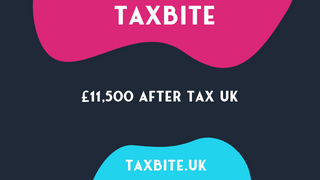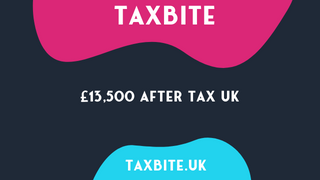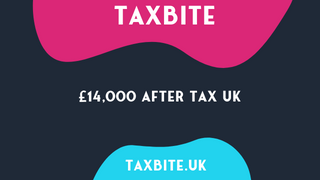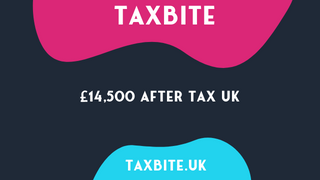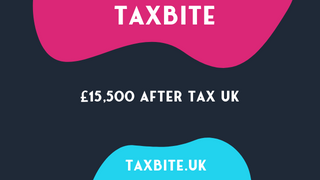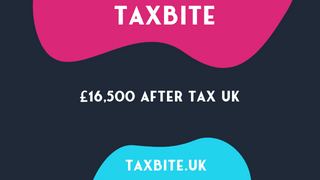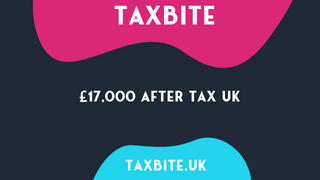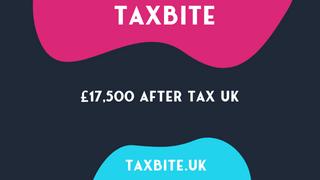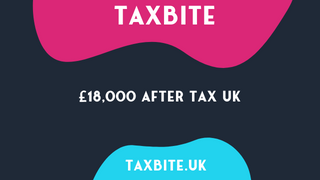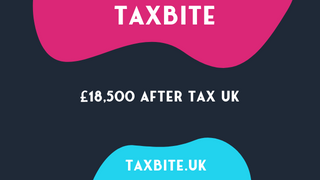With the average salary in Great Britain being around £29,600 per year, it is important to understand the nuances of taxation on a £16,000 salary. In this section, we will examine the factors that contribute to gross and taxable income, as well as National Insurance contributions. By the end, you will have a comprehensive understanding of how taxation works for a £16,000 salary in Great Britain. Trust us, this is crucial information you won’t want to miss.
Take a look at the table below for a breakdown of gross income versus taxable income.
| Gross Income | Taxable Income |
|---|---|
| £16,000 | £11,500 |
National Insurance Contributions are also deducted from gross income. These contributions help fund social security benefits like healthcare, unemployment support and state pensions.
National Insurance Contributions reduce your take-home pay (net pay). But, you get certain state-provided services in return, like free healthcare.
For example, a gross salary of £16,000 with 12% contributions to national insurance schemes would result in a net pay of £1,122 per month.
It is essential to understand the difference between taxable and gross income. This helps you calculate your after-tax earnings and plan financially for the future.
For example, a recent graduate worker was surprised by their first payslip. It showed a significantly lower take-home salary than they expected. After understanding their Gross and Taxable earnings on a £16k salary, it became clear why the take-home amount was much smaller.
The National Insurance Contributions scheme in Great Britain is a system run by the government. It requires individuals to pay based on their income. This gives access to healthcare and state pensions. If you earn £16,000 a year, you must pay National Insurance Contributions.
These contributions are worked out from your gross income. It can range from 0% to 12%. But there’s a limit to how much you need to pay. This is the threshold for 2021/22 tax year and it’s £184 a week (£9,568 a year). When you reach this amount, it’ll be taxed at 12%. This rate drops to 2% when you reach £967 a week (£50,264 a year).
National Insurance Contributions don’t just affect your state pension, but also give access to other benefits. For example, maternity and sick pay. People who are self-employed or living abroad can also make voluntary contributions.
It’s important to know how much you need to pay for National Insurance. This is for planning your expenses and getting government benefits. If you don’t make these payments, you can’t claim some benefits, and this may cost more in the long-run.
If you’re curious about how much you can expect to take home with a gross annual income of £16,000, we’ll break it down for you. Based on the current tax year (2021-2022), your monthly net pay calculations would be approximately £1,221. Deductions, including National Insurance and taxes, will be around £143 per month. These figures assume that you are under 65 years of age, not married, and do not have any children. With this information, you can get a better understanding of how much money you’ll have to work with and plan accordingly.
Calculating monthly net pay is essential to understand the taxation of a £16,000 salary in Great Britain. This refers to the money left after taxes and deductions. To understand this better, it is necessary to go deeper into the breakdown of net pay for £16,000 gross income.
The table below shows the typical breakdown of monthly net pay for a gross annual salary of £16,000 in Great Britain.
| Gross Annual Salary | Taxable Income | Monthly Net Pay |
|---|---|---|
| £16,000 | £13,570 | £1,066 |
To calculate monthly net pay, taxable income needs to be identified. This is done with the tax rate bands of the current financial year. National Insurance contributions also need to be considered.
Other factors can affect monthly net pay, such as pension contributions and student loan repayments. It is important to understand these elements and factor them into calculations. This helps individuals manage their finances and ensure they get accurate remuneration from employers.
Calculating after-tax income involves understanding deductions and allowances. Deductions are expenses that can be deducted from gross earnings, leading to a lower tax liability. Allowances reduce the amount of money one pays taxes on. For those earning below £100,000, the standard Personal Allowance is an amount taken out before tax is calculated. One may also claim Marriage Allowance, Blind Person’s Allowance, or Child Benefit Charge. Other elements that can reduce taxable income include pension contributions, charitable donations, and work-related expenses.
If someone has a gross salary of £16,000, deductions and allowances must be taken into account. The final after-tax income will vary based on age, employment status, and education debt obligation. Student loan repayments are not deductible or eligible for tax relief upfront, but this should not affect the calculation of Gross Income when calculating taxable income. A tax calculator helps figure out how much one will take home each month after paying taxes.
Are you considering a salary increase and wondering how much money you’ll end up taking home after taxes? Wonder no more! In this segment, we’ll explore the benefits of using tax calculators and how they can help you determine your estimated after-tax income.
Whether you’re an employee or self-employed, using a tax calculator is an easy way to avoid surprises in your post-tax pay. So, let’s dive into how to use a tax calculator and learn about its various benefits.
Tax calculators give individuals who want to work out their post-tax income multiple advantages. A crucial benefit is that they provide accurate figures of deductions and income. This data can help people make smart decisions about their future finances, like savings or investments.
Tax calculators also provide a speedy, efficient way to work out deductions and allowances. Users can avoid the complications and mistakes of manual calculations by using the step-by-step help from these tools.
Using tax calculators can also help individuals find errors in their tax returns before they are submitted. With accurate info, users can check their own calculations against the tool’s. This can help find oversights the user might have otherwise missed.
Using a tax calculator can also save people time and money by avoiding expensive mistakes or deadlines missed due to filing taxes. This provides better chances to plan for financial duties like insurance contributions for taxes.
Plus, using a tax calculator is straightforward and open to everyone. Most websites offering this service have simple user interfaces that don’t need prior knowledge of complex financial matters. All these benefits stress the importance of using tax calculators to make financial planning easier and more effective.
Tax calculators are very useful when you want to calculate your after-tax income. This is especially true if you earn a salary of £16,000 or less. You can get an accurate estimate of your net pay by entering your gross income, tax code, and pension contributions into a good online tax calculator.
Here is a 4-step guide to using a tax calculator:
Remember, though, that tax calculators only give an estimation and not precise numbers. In special cases such as self-employment or freelance work, the actual earnings may be different than the estimated net pay due to other factors.
In conclusion, tax calculators can be helpful when you want to figure out your after-tax income. But it is important to take your unique situation into account and use other resources such as financial advice when making financial decisions based on these predictions.
Are you curious about how to increase your take-home pay? Making adjustments to your student loan repayments, pension contributions, and taxable income can significantly impact your earnings. In the following lines, we will explore the various options for reducing your taxable income, such as making charitable donations or claiming work-related expenses. We will also examine the impacts of pension contributions and student loan repayments on your earnings, giving you a comprehensive understanding of how to maximize your take-home pay.
Repaying your student loan is crucial when looking at after-tax income. The money you have to pay back depends on what you earn. For those who started in England or Wales on or after the 1st of September 2012, and took out a tuition fee loan or maintenance loan, repayments start when you’re earning over £27,295 per annum.
Student loan payment plans are different from others. The amount you pay changes each year according to your salary. So if you earn less one year, the payments go down.
To reduce your tax and lower student loan payments, contributing to an employer’s pension scheme could be helpful. This often lowers your taxable income, thus decreasing any payments due. But it’s important to check if extra pension contributions are suitable for you, as tax laws differ.
Contributing to a pension scheme is a great way to reduce taxable income while building financial security for retirement. The UK government encourages this with tax relief on approved scheme contributions. Depending on age and earnings, individuals could be eligible for up to 100% of their income or £3,600 (whichever is higher).
Employers may offer a workplace pension scheme. This means deductions from monthly pay for pension contributions. This reduces take-home pay, but gives more benefits in the long run.
Making approved pension contributions reduces taxable income. It also increases after-tax income for retirement. It’s important to understand how much one can contribute to get employer contributions. The right strategy and consistent contributions can give a comfortable retirement and a financially sound future.
Taxpayers can decrease their taxable income via various tax-efficient strategies. One is investing in an Individual Savings Account (ISA). This year, the allowance is £20,000.
Self-employed people can also reduce their taxable income by claiming business expenses. This includes travel costs, equipment, and office rent.
Donating to charity also enables tax relief of 25%. There are also tax credits and reliefs that individuals can take advantage of.
Marriage Allowance is another option. It allows transferring up to 10% of the personal allowance to a spouse or civil partner who earns less.
To make sure taxable income is accurately reported, taxpayers should get help from qualified financial advisors or HM Revenue & Customs. Also, the standard Personal Allowance in 2021/22 is £12,570.
By now, you may have an idea about your potential net take-home income with a £16,000 salary. Understanding your after-tax income is essential to manage your money and make informed financial decisions. Let’s recap the calculation we covered earlier.
It’s crucial to know how to compute after-tax income on a salary of £16,000 annually for financial planning. Deductions and allowances like National Insurance contributions, personal allowance, and basic rate tax of 20% should be taken into account. Utilize tax calculators to gauge after-tax income and the advantages of different tax options. Increase after-tax income by making modifications such as personal allowance and pension contributions. Tax credits or deductions for work-related expenses can lessen taxable income.
In conclusion, understanding deductions and allowances, using tax calculators, and making adjustments to increase after-tax income are all significant steps when calculating after-tax income on a salary of £16,000 annually. Knowing the calculations is key to ensure clarity and smarter financial decisions.
Comprehending after-tax income is important, especially for those earning an annual salary of £16,000 in Great Britain. It is key to know the break-down of gross and taxable incomes, as well as the amount of national insurance contributions. Moreover, calculating monthly net pay and accounting for deductions and allowances gives more insight.
Tax calculators are super helpful for precisely estimating after-tax income. They take into account various aspects, like tax codes, pension contributions, student loan repayments, and other choices that reduce taxable income. Using these calculators helps to avoid any mistakes that could impact overall finances.
Therefore, it is essential to know how changes like student loan repayments, pension contributions, and other options can influence after-tax income. These adjustments let individuals lower their taxable income, while still contributing to student loans or a pension fund for future needs. Consequently, considering all these options is vital when estimating after-tax income.
For the 2022/2023 tax year in the UK, a gross income of £16,000 per year is equivalent to a net income of £14,503 annually or £1,209 monthly. This calculation assumes that the individual is under 65 years old, unmarried, and has no pension deductions, childcare vouchers, or student loan payments.
The taxable income for a yearly salary of £16,000 in the 2022/2023 tax year is £3,430 per year, with a tax of £686 and national insurance of £810.90 per year. The first £12,570 earned is tax-free, giving a monthly tax-free allowance of £1,048. The remaining £3,430 is taxed at the basic tax rate of 20%, with no earnings qualifying for the higher tax rate of 40% or additional tax rate of 45%. There are no student loan payments for this salary.
The average tax rate for a salary of £16,000 in the UK in the 2022/2023 tax year is 7.1% and the marginal tax rate is 33.3%. The marginal tax rate means immediate additional income will be taxed at this rate. An increase of £100 in salary will be taxed £33.25, leaving a net pay increase of £66.75.
A £1,000 bonus will generate an extra £668 of net income, while a £5,000 bonus will generate an extra £3,338 of net income for a salary of £16,000 in the UK in the 2022/2023 tax year.
There are various tax calculators available online to calculate income tax and national insurance deductions from a salary. Some calculators provide results for weekly, monthly, and yearly deductions. Users can enter their salary to view tax deductions and take-home pay. The calculator helps users figure out how much money they will have left at the end of the month. Users can add details and the results appear directly as the input fields update.
If you are earning £16,000 per year, you do not normally need to complete a Self Assessment tax return, unless you receive additional income from another source or have more complex tax affairs. However, it’s always advisable to check with HM Revenue and Customs (HMRC) to determine if you need to file a Self Assessment tax return or not.
Here’s a list of similar salaries:



